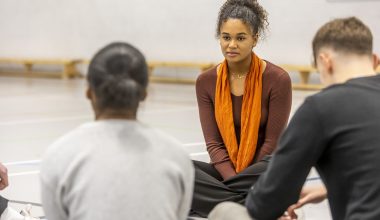When it comes to education in the UK, understanding the different key stages is essential. If you have a child starting school, you may be wondering, “What years are KS1?” It’s important to have a clear understanding of the education system to support your child’s learning journey.
Key Stage 1 (KS1) is very important in a child’s education, focusing on building foundational skills and knowledge.
Understanding which years fall under KS1 can help parents and educators provide the necessary support and guidance for young learners.
In this article, we will look at what years are considered to be KS1 and also look into the key aspects of this stage in a child’s education.
Table of contents
Read: What is a Placement Year at University?
What are the Key Stages?
Key stages refer to the different developmental milestones that children typically reach as they grow and learn. These stages are essential for tracking a child’s progress and ensuring they are meeting age-appropriate goals.
The key stages include early years, primary school, secondary school, and further education or employment. Each stage builds upon the previous one, providing a foundation for lifelong learning and development.
During the early years stage, children develop crucial skills such as language acquisition, social interaction, and physical coordination. Primary school focuses on building foundational knowledge in subjects like math, science, and literacy.
Secondary school introduces more complex concepts and prepares students for higher education or entering the workforce.
Further education or employment allows individuals to specialize in a particular field or pursue career opportunities. By recognizing and supporting each key stage of development, we can help children navigate their educational journey with confidence and success.
What are the 5 Key Stages?
- Early Years Foundation Stage (EYFS): This is for children from birth to 5 years old.
- Key Stage 1 (KS1): This is for children from 5 to 7 years old.
- Key Stage 2 (KS2): This is for children from 7 to 11 years old.
- Key Stage 3 (KS3): This is for children from 11 to 14 years old.
- Key Stage 4 (KS4): This is for children from 14 to 16 years old.
- Key Stage 5 (KS5): Sixth form or college (ages 16-18)
Also Read: Best Head Boy Speech: A Student’s Top 10 Tips
What Years are KS1?
Key Stage 1 (KS1) is for children from 5 to 7 years old. It is the first stage of formal education in England, Wales and Northern Ireland.
KS1 is divided into two years: Year 1 and Year 2.
In Year 1, children learn the basics of reading, writing, and mathematics. They also learn about science, geography, history, art, music, and physical education.
In Year 2, children continue to develop their skills in reading, writing, and mathematics. They also learn about other subjects such as computing, design and technology, and personal, social, and health education (PSHE).
What are the Key Stage 1 Subjects?
The following are the core subjects that are taught in Key Stage 1:
- English
- Mathematics
- Science
- Computing
- Design and technology
- History
- Geography
- Art and design
- Music
- Physical education
- Personal, social and health education (PSHE)
In addition to these core subjects, schools may also choose to teach other subjects such as modern foreign languages, religious education and citizenship.
Related: Is Psychology A-Level Exams Hard: What Other A-Levels Go Well With A-Level Psychology?
What are the Key Stage 1 Assessments?
Two main assessments take place in Key Stage 1:
- The Phonics Screening Check: This is a short test that takes place in Year 1. It is designed to assess children’s ability to read and spell simple words.
- The National Curriculum Assessments: These are more formal tests that take place in Year 2. They assess children’s skills in English, mathematics, and science.
The results of these assessments are used to track children’s progress and to identify those who may need additional support.
What are the Differences Between KS1 and KS2 years?
The main difference between Key Stage 1 (KS1) and Key Stage 2 (KS2) is the age of the children. KS1 is for children from 5 to 7 years old, while KS2 is for children from 7 to 11 years old.
Another difference is the depth and complexity of the subjects that are taught. In KS1, the focus is on the basics of reading, writing, and mathematics. In KS2, children learn more advanced skills in these subjects, as well as other subjects such as science, geography, history, art, music, and physical education.
Finally, the assessments that take place in KS2 are more formal than those that take place in KS1.
Read: How Many Words is a University Dissertation? | Dissertation Tips
What years are KS2?
In the UK education system, Key Stage 2 (KS2) typically covers children aged 7 to 11 years old. This stage of education is crucial for building on the foundational skills learned in Key Stage 1 and preparing students for the transition to secondary school.
During KS2, students focus on subjects such as English, mathematics, science, history, geography, and more.
Key Stage 2 is a significant period in a child’s academic journey as they develop more advanced knowledge and skills across various subjects. Teachers work closely with students to help them progress academically and personally, fostering a love for learning and encouraging curiosity.
By the end of Key Stage 2, students are equipped with essential knowledge and abilities that will serve as a strong foundation for their future educational endeavors.
What are the KS2 years subjects?
English, mathematics, and science are the core subjects in KS2. They form the foundation of the curriculum and are taught throughout the school year.
In addition to the core subjects, children in KS2 also study other subjects such as History, Geography, Art, Design and Technology, Computing, Music, Physical Education (PE), and Religious Education (RE).
These subjects help to develop critical thinking skills, creativity, physical fitness, and an understanding of different cultures and beliefs.
The KS2 curriculum aims to provide children with a broad knowledge base and skills that will prepare them for future academic success.
What are the Key Stage 2 Assessments?
There are two main assessments that children take in Key Stage 2:
- The Multiplication Tables Check is taken by all children in Year 4. This check assesses their ability to recall multiplication tables up to 12 x 12.
- All children in Year 6 take national tests in English reading, mathematics, grammar, punctuation, and spelling.
What years are KS3?
KS3 stands for Key Stage 3 in the UK education system and typically covers students aged 11-14 years old.
This stage of education is crucial in laying down the foundation for more advanced learning in subjects like English, Math, Science, History, Geography, and others. Students at this stage are encouraged to develop their critical thinking skills, creativity, and independent learning abilities.
During KS3, students are introduced to a wider range of subjects and topics to help them explore their interests and strengths. It’s a time for young learners to build confidence in their academic abilities and start preparing for the challenges of GCSE examinations later on.
KS3 is an exciting period where students can discover new passions and develop important skills that will serve them well in their future academic endeavours.
Related: Is University Higher Education or Further Education in UK?
KS3 years Subjects
English, maths, science, computing, PE, art, design and technology, music, history, geography, religious education, and modern foreign languages.
There are no assessments in K3. However, the school may choose to test students’ understanding.
What years are Key Stage 4 (KS4)?
Key Stage 4 (KS4) is the two years of secondary education in England, Wales, and Northern Ireland when pupils are aged between 14 and 16.
It is also known as the GCSE (General Certificate of Secondary Education) phase, as pupils typically take GCSE exams in a range of subjects in these two years.
KS4 is divided into two years: Year 10 and Year 11.
In Year 10, pupils continue to study the core subjects of English, mathematics, and science. They also choose to study a range of other subjects, such as history, geography, modern foreign languages, art, music, design, and technology.
In Year 11, pupils take their GCSE exams. The number of GCSE exams that pupils take varies, but most pupils take between 8 and 10 exams.
At the end of KS4, pupils are awarded GCSE certificates in the subjects they have taken. These certificates can be used to apply for further education or employment.
Key Stage 5 (KS5):
It is a combination of A-levels, BTECs, and other qualifications.
Key Stage 5 (KS5) is the two years of post-16 education in England, Wales and Northern Ireland. It is also known as the A-level phase, as pupils typically take A-level exams in a range of subjects in these two years.
KS5 is divided into two years: Year 12 and Year 13.
In Year 12, pupils typically study three or four A-level subjects. They also have the option to study other subjects, such as BTECs, apprenticeships or vocational courses.
In Year 13, pupils take their A-level exams. The number of A-level exams that pupils take varies, but most pupils take three A-levels.
At the end of KS5, pupils are awarded A-level certificates in the subjects that they have taken. These certificates are used to apply for university or employment.
What are the assessment in KS5?
The key assessment for KS5 is the A-level exam. A-levels are rigorous exams that assess pupils’ knowledge and understanding of a particular subject. They are graded on a scale of A* to E, with A* being the highest grade.
In addition to A-levels, other qualifications can be taken at KS5, such as BTECs, apprenticeships, and vocational courses. Universities and employers also value these qualifications.
What are the Assessments in Each Key Stage, years KS 1-5?
There are a variety of assessments in each key stage, including:
- National Curriculum tests: These are tests in English, maths, and science that are taken by all children at the end of each key stage.
- Teacher assessments: These are assessments that are carried out by teachers throughout the key stage to track children’s progress.
- Pupils’ progress checks: These are checks that are carried out by teachers in Years 1 and 2 to assess children’s early literacy and numeracy skills.
- Sats checks: These are checks that are carried out in Year 6 to assess children’s reading, writing, and maths skills.
FAQs on what are the years in Key Stages 1-5?
The main differences between Key Stage 1 and Key Stage 2 are the age range, the focus of the curriculum, and the amount of assessment. Key Stage 1 is for children aged 5-7, while Key Stage 2 is for children aged 7-11. Key Stage 1 focuses on the basics of literacy and numeracy, while Key Stage 2 builds on these skills and introduces children to a wider range of subjects. There are also more assessments in Key Stage 2 than in Key Stage 1.
The curriculum is designed to help children develop the knowledge and skills they need to succeed in later life.
Children learn at different rates, so it is important to be patient and supportive.
There are a variety of resources available to help parents support their children’s learning.
The EYFS is the first stage of formal education in England. It covers the years from birth to 5. KS1 is the first two years of primary school. Children in KS1 are typically aged 5-7.
Conclusion
KS1 refers to the first two years of primary education in the UK, typically covering children aged 5 to 7. These important foundational years focus on developing key skills in subjects such as English, mathematics, science, and art.
The curriculum is designed to support children’s early learning and provide a solid basis for their future academic success. Understanding what years encompass KS1 can help parents and educators better support young learners as they embark on their educational journey.


